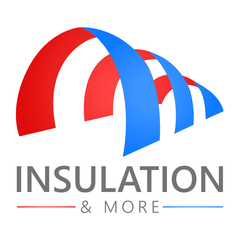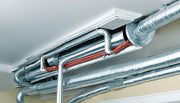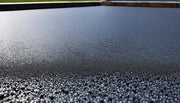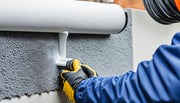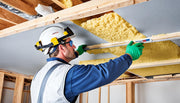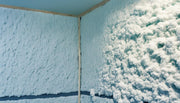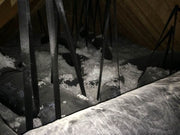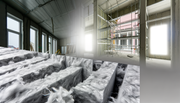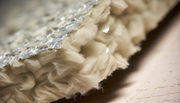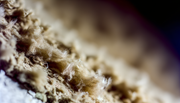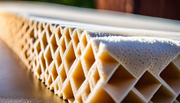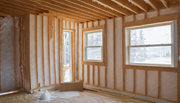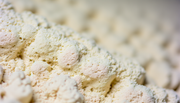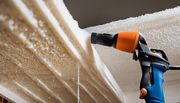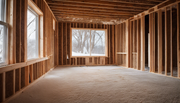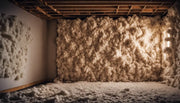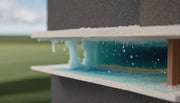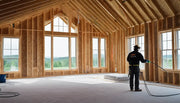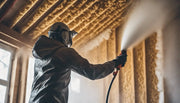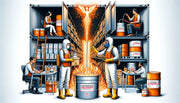When it comes to ensuring your attic is well insulated, the thickness of the spray foam applied is a critical aspect to consider. The optimal thickness of spray foam insulation in your attic for maximum energy efficiency can vary based on several factors, including the climate you live in and the particular type of spray foam you're using.
Understanding the Right Thickness for Your Attic
The effectiveness of insulation is measured by its R-value, which stands for resistance to heat flow. The higher the R-value, the better the insulation material is at reducing heat transfer. To achieve maximum energy efficiency in your attic, the spray foam insulation should generally have an R-value of around 38 to 49 for most UK homes.
For open-cell spray foam, a thickness of approximately 25 to 30 centimeters might be necessary to achieve an R-49 value, whereas closed-cell spray foam could achieve the same R-value at about 18 to 20 centimeters thickness due to its denser composition.
Table: Suggested Thickness for Spray Foam Insulation
| Foam Type | Approximate Thickness for R-49 Value |
|---|---|
| Open-Cell | 25-30 cm |
| Closed-Cell | 18-20 cm |
Find out more about how spray foam insulation can benefit your home in the long run by exploring the perks it brings to the table, such as improved home comfort and reduced energy bills, in one of our articles discussing the numerous advantages of this modern insulation material.
Variations in Spray Foam Insulation
There are different types of spray foam insulation, primarily open-cell and closed-cell, which have distinct properties. Closed-cell is much denser and has a higher R-value per inch than open-cell. Understanding which type you're using is essential, as it affects the required thickness for optimal insulation.
It's not only about the positives; you should also be aware of the potential downsides. There are pros and cons of spray foam insulation, and being informed about them can help you make a better decision for your specific needs.
Considering the R-Value
If you're interested in diving deeper into the R-value and what it means for your insulation choices, our article on the R-value of spray foam insulation provides you with a detailed explanation.
Dealing with Moisture and Vapor
Apart from its thermal properties, insulation also plays a role in controlling moisture. You might be wondering if a vapor barrier is necessary when using spray foam insulation. This is an important consideration as it can prevent potential moisture-related issues in your attic.
The question of whether spray foam can be left exposed is also significant for aesthetic and safety reasons, as well as building regulations that you might need to comply with.
Additional Benefits and Considerations
On top of thermal insulation, many homeowners are interested in whether **spray foam helps with soundproofing**—another added benefit that might influence your decision on the extent and type of insulation you use.
Longevity is another key factor, so knowing how long spray foam insulation lasts could be instrumental in making a cost-effective choice.
Always prioritize safety as well. With any product you use in your home, you should understand the safety aspects of spray foam insulation to ensure a healthy living environment for your family.
Lastly, some building codes may require that foam insulation be covered. Our article on whether spray foam insulation should be covered will guide you through these regulations.
Conclusion
Deciding on the thickness of spray foam insulation in your attic should be a well-considered choice based on the specific type of foam, your climatic region, and the R-value you aim to achieve. Ensuring the correct thickness is essential for maximum energy efficiency, which translates to a more comfortable home and lower energy bills. Always refer to local building codes and consult with a professional to determine the ideal solution for your home.
